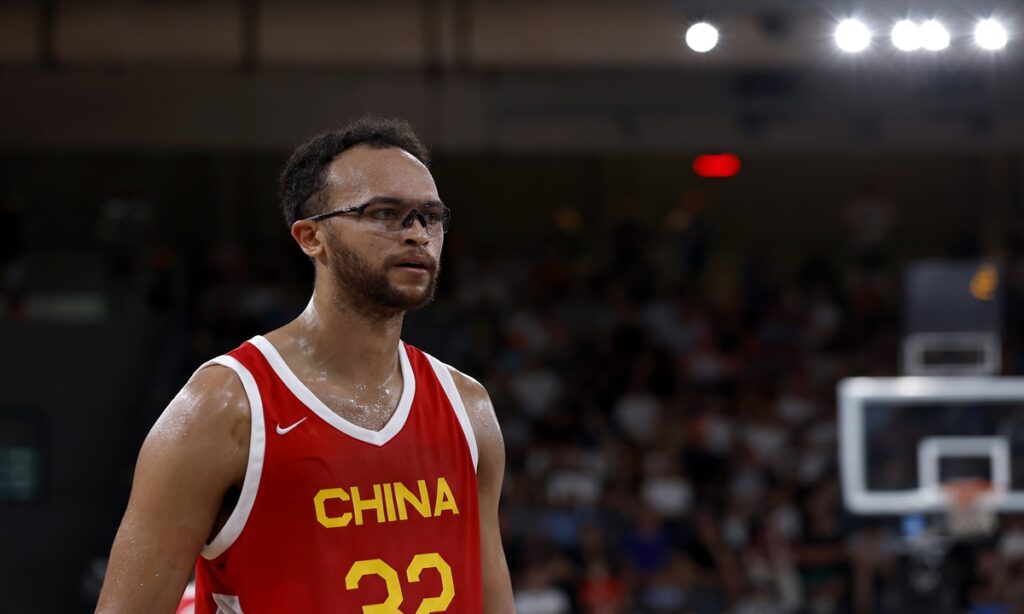Unsurprisingly, China suffered an 87-64 defeat to Serbia in the buildup to the FIBA World Cup. The match highlighted the stark difference in strength between China and basketball powerhouse Serbia. Notably, Serbia’s marquee player Nikola Jokic was absent from the lineup. Nevertheless, amid these challenges, a recent domestic transfer swap involving center Zhou Qi and guard Zhao Rui has brought a sense of reassurance to Chinese basketball enthusiasts.
Zhou Qi, the star center who had been restricted from club competitions due to contractual obligations to his former team the Xinjiang Flying Leopards, has successfully transitioned to the Guangdong South China Tigers. This move was facilitated by an exchange wherein guard Zhao Rui joined the northwestern Xinjiang team. The intriguing aspect of this transfer news is that it was announced by both clubs and, unusually, by China’s basketball governing body the Chinese Basketball Association (CBA). This signifies the active involvement of the CBA in securing Zhou the opportunity to play in first-team basketball.
There is a purpose to CBA’s coordination. While the national basketball team is participating in the FIBA World Cup, their primary objective remains securing qualification for the Paris 2024 Olympic Games. In the current scenario, the best-performing Asian teams at the World Cup will earn automatic qualification for the next Summer Olympics. To achieve this, it’s imperative that players’ attention is directed toward international competitions, minimizing potential distractions posed by club commitments.
Considering Zhou’s integral role in China’s international basketball campaign, it is paramount to ensure his unwavering focus on national team duties rather than club pursuits. Addressing this issue ahead of the World Cup is essential for Zhou to dedicate his energies entirely to the impending tournament that starts on Saturday and the pursuit of an Olympic berth for the national team.
Head coach Aleksandar Dordevic is also grappling with a challenge concerning the naturalized player Li Kai’er. The inclusion of Li, formerly known as Kyle Anderson in the US, has injected tactical diversity into the team’s offense. However, recent friendly match results have highlighted a worrisome trend: The excessive reliance on the NBA star by the Chinese players has led to a precarious situation where one player becomes the sole decision-maker.
Even if Li Kai’er delivers exceptional performances, his individual brilliance alone cannot guarantee success. Basketball thrives on teamwork and collective effort. The diversity of skill sets within the team is the cornerstone of triumph. Placing undue reliance on a single player risks the overall performance of the team.
As the World Cup looms less than a week away, Dordevic still has time to make adjustments to the team’s strategy. The recent transfers and maneuvers are indicative of a concerted effort to enhance China’s standing in the global basketball arena. Hopes remain high that the team’s newfound cohesion and determination will pave the way for them to excel on the international stage. By harnessing the strengths of each player while promoting a collaborative ethos, China’s national basketball team has the potential to emerge as the top-performing Asian team at the FIBA World Cup.
(Global Times)




